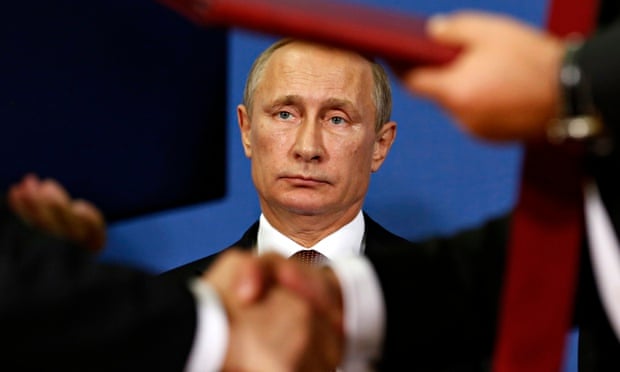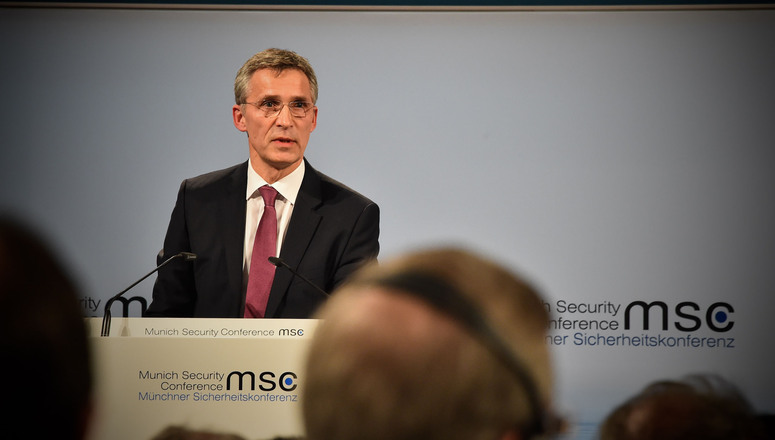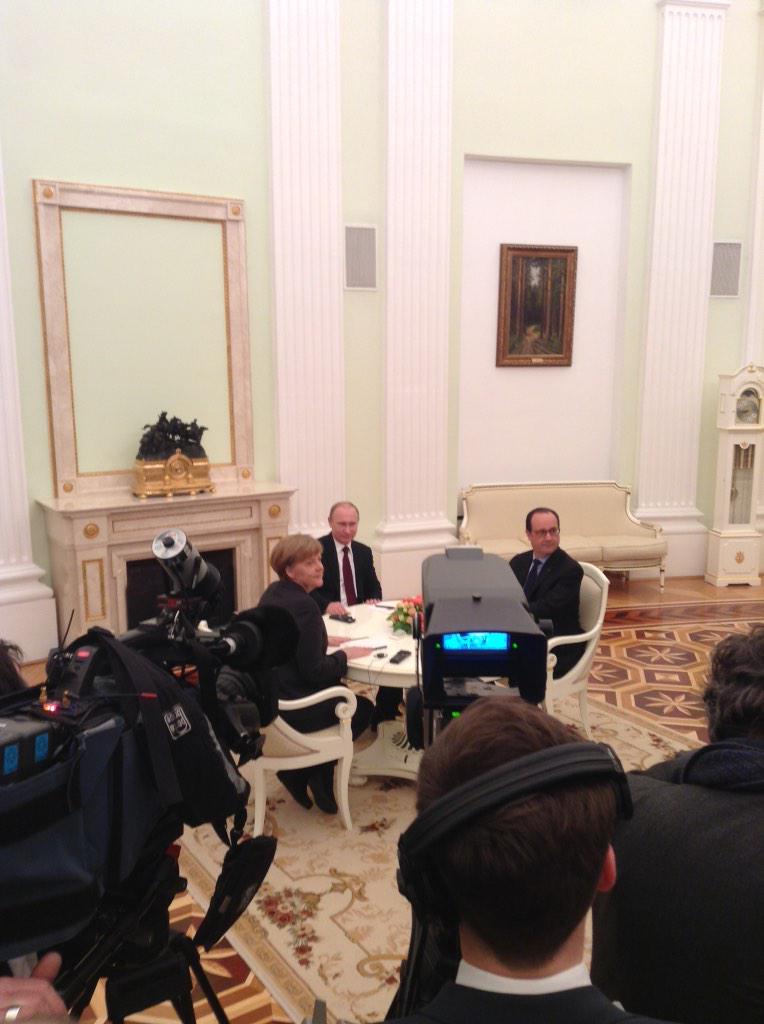Source: Tanjug
NEW YORK -- The UN Security Council on Friday held a session dedicated to Kosovo, where
the latest report by UN Secretary-General Ban Ki-moon was presented.
First Deputy Prime Minister and Foreign Minister Ivica Dacic represented Serbia during the meeting.
Dacic
said on Friday that Serbia expects the political vacuum to be overcome
now that the government in Pristina has been constituted, which should
contribute to the continuation of implementation of agreements reached
so far in the Brussels dialogue.
"We expect the continuation of
the high-level dialogue in Brussels on February 9 to deliver an
additional incentive to the launched process of normalization of
relations between Belgrade and Pristina," Dacic said.
He called
on political leaders in the province to invest additional efforts in
the continuation of the dialogue, primarily with regard to the best
interests of the population in Kosovo-Metohija, now that the political
process in Pristina has been unblocked and the conditions for such a
step have been created.
The Serbian minister said that Belgrade
expects the EU to continue facilitating the dialogue with Pristina
through its active engagement.
"We believe that the commitment
to European integration constitutes the main driving force in the
normalization of the Belgrade-Pristina relations, " the Serbian foreign
minister said.
He underscored that the Serbian government will
continue investing active efforts in the implementation of the Brussels
agreement with a view to ensuring peace, economic prosperity and
reconciliation.
He expressed the satisfaction with the fact
that the report filed by UN Secretary General Ban Ki-moon has recognised
the importance of constitution of the Community of Serb municipalities
which has been defined as a key point in the immediate continuation of
the implementation of the Brussels agreement.
Dacic underscored
that the return of internally displaced persons, position of the
Serbian Orthodox Church and property issues will remain the key matters
for the Republic of Serbia in the continuation of the dialogue with
Pristina.
According to him, the essence of the process of
normalization of relations lies in identification of the right answers
to the questions that pose a burden to the life of citizens in Kosovo
and Metohija and prevent full respect for their basic rights.
This can only be achieved through a dialogue based on sincere
appreciation of the needs and interests of the other side and the
willingness to compromise, Dacic said and added that the participation
of Serbia in the political life should also contribute to this end.
Dacic said that the recent dismissal of Minister of Communities and
Returns of the Serb List Aleksandar Jablanovic and the protest that
preceded his dismissal create an atmosphere of hatred towards Serbs and
give ground to an additional feeling of distrust and insecurity.
An atmosphere of political instability and an anti-Serb campaign have
been created, which is contrary to the goals of the dialogue in
Brussels, he noted.
Dacic qualified as unacceptable any search
for a solution to the issue of property of the Trepca mining complex
that would be conducted outside the frameworks of the Brussels
agreement.
We need to make sure that all activities concerning
privatization in Kosovo and Metohija are restored to the valid legal
frameworks, he underscored and noted that any solution to the issue of
the Trepca mine other than that defined within the Brussels agreement
would be unacceptable for Serbia.
Dacic noted that the Kosovo
Privatization Agency is conducting the privatization processes that are
contrary to the international and European conventions on human rights,
and added that the tendency for privatization of public and
socially-owned companies is particularly pronounced in environments with
majority Serb population.
A special reason for concern lies in
the attempt of the provincial government to adopt amendments to the law
on public enterprises without prior consultations with representatives
of the Serb community, Dacic said and noted that this would violate the
agreement according to which the property should be discussed in
Brussels with the mediation by the European Chamber and European
Commission.
Dacic underscored that the presence of KFOR in the province is necessary and that further reduction of troops must be avoided.
Pointing to the need for introduction of additional measures for
protection of the Serb cultural and religious heritage, Dacic recalled
the repeated appearance of the graffiti of the Islamic State on the
facilities of the Visoki Decani Monastery, noting that Serbia will
continue with its determined actions in countering terrorism.
"We expect the international mission in Kosovo and the local interim
institutions to give their contribution to the shared fight which has
global importance," Dacic said.
As one of the co-sponsors of
the UNSC Resolution 2178, Serbia is implementing all the necessary
measures to counter terrorism funding and organization of terrorist
activities and the increasingly widespread phenomenon of recruitment of
foreign mercenaries who are joining armed terrorist organizations in the
Near East, such as the Islamic State of Iraq and the Levant, the
Serbian minister said.
On this occasion, Dacic also underscored
that suspicion concerning the impartiality of the Kosovo judiciary is
further reinforced by the case of Oliver Ivanovic as one of the
political leaders of Serbs who has been kept in prison for a year now
although the court procedures against him are still in the early stages.
Dacic also commended the efforts invested in the investigation
into the allegations included in the report filed by rapporteur Dick
Marty concerning the inhumane treatment of people and illegal
trafficking of human organs in Kosovo.
Trepca
Kosovo
Foreign Minister Hashim Thaci said during a UN Security Council (UNSC)
meeting Friday that the Mining, Metallurgical and Chemical Combine
Trepca belonged to Kosovo.
Trepca is Kosovo’s and Kosovo will
decide on Trepca, Thaci said during the UNSC quarterly meeting on the
situation in Kosovo and Metohija.
A solution to this issue has
been postponed since the international administration in Kosovo was not
ready to deal with political pressures that it would entail, Thaci said.
Serbia’s Development Fund owns a 58 percent stake in Trepca
and the rest is owned by a number of Serbian companies save for a small
stake owned by the employees.
For that reason, the Serbian
government last month sharply opposed Pristina’s intention to adopt
legislation to enable itself take over Trepca, and insisted that the
issue, as well as other property issues, had to be resolved through
talks in Brussels.
Commenting on the recent dismissal of
Aleksandar Jablanovic, a Serb who served as minister for communities and
returns in Pristina’s government, Thaci said that he had not been
replaced because he was a Serb, but because he had not been professional
enough.
Serbia took advantage of that to launch a political attack on Kosovo, Thaci said.
He expressed concern about what he called the trend of the Serbian side
to drag out the implementation of the Brussels agreement and to
interfere with the internal affairs of Kosovo.
Speaking about
the issue of mass illegal migration of Kosovo citizens to EU countries
in recent years, Thaci said that they were “fleeing” Kosovo because of
an absence of a legal framework to enable them to “legally” emigrate to
the EU.
He stated that Kosovo was preparing, in coordination
with its Euro-Atlantic partners, for setting up a Kosovo army, "a
professional and multiethnic military that would be ready to contribute
to regional peace and global security."
Thaci called on all UN member-states that have not recognized Kosovo "to do so."


 Serbia-Hungary border – Photo: Reuters
Serbia-Hungary border – Photo: Reuters






















